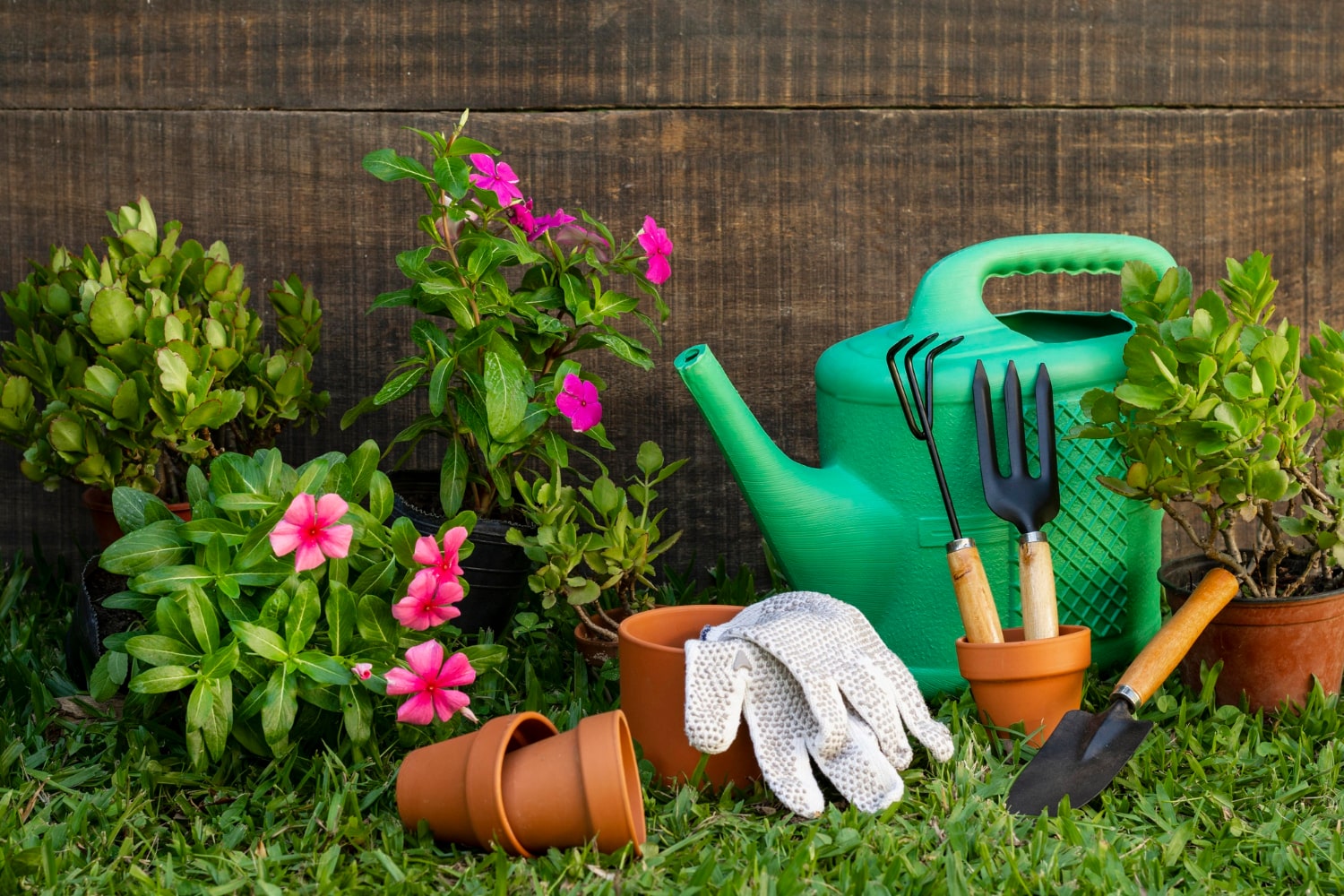
Your home garden can provide you with fresh herbs, bountiful veggies, and lovely flowers. However, if you don't have good quality soil or the right light, you may never be happy with the output of your garden. Be ready to turn over some soil once you get things laid out to see what sort of soil quality you're working with.
A Measuring Tape
A small garden, properly maintained, can be extremely productive. A garden that is bigger than you can manage will be a weedy mess that will never make you happy. Start with a space no larger than 6 x 6 so that you have a space that you can dig up, amend as necessary and keep tidy. When you increase your gardening skills, you may be ready to dig up the next space.
A Sharp Shovel
When you're ready to start taking out sod, a sharp shovel with a nice wide step platform will reduce wear and tear on your feet and back. Make sure that, once you own a good sharp shovel, you maintain it by cleaning it before you put it away.
Other gardening tools will need similar care. If you hate to wear gloves in the garden, get rakes, hoes, and soil cultivators with fiberglass handles, or be prepared to oil the wooden handles on the tools you have. Untreated wood will give you splinters, shrink and ultimately fall apart over time.
A Knowledge of the Sun Path Across Your Yard
There are many gardeners who love to experiment by trying to overwinter greens or starting tomatoes early. These experiments may or may not work, especially if you don't know how much sun each region of your yard gets. If you really love hostas and other shade-loving plants, you will need a flower bed with low light.
If you really love fresh veggies, you will need a stretch of ground that gets around eight hours of sun each day. This may mean trimming back trees, moving a fence, or creating a long, skinny garden alongside the southern edge of your garage or home. Easily keep your lawn tidy with a whipper snipper.
Critter Awareness
Many folks who want to garden also love birds and other wildlife. Be aware if you feed songbirds and plant cherry trees - you may have just given them more food. In fact, birds will happily pierce and drink from cherries that haven't had a chance to ripen. This doesn't mean that you shouldn't plant cherry trees, but you may want to move your bird feeder first.
Consider setting up a trail cam to see what creatures currently visit your backyard. If you have local raccoons, be prepared to protect your fruit trees and sweet corn. If you have bunnies, your garden will need a fence to keep out lettuce thieves. If your neighborhood has armadillos or possums, you may struggle to create a compost pile that doesn't get raided when you add scraps.
Info on Drainage and Sprinklers
When it rains hard, take a stroll through your backyard to see where the water stands. Don't dig your garden there. Consider putting in french drains at the back of your property if you get a lot of standing water after heavy rains. You may also have clay soil, which will need a lot of compost to improve the available oxygen for your young plants.
If you live in a dry area and have a sprinkler system, consider investing in a hydrostatic test pump to make sure you can keep the lines protected from frost damage.
Consider Adding Soaker Hoses
For those who don't have sprinkler systems, soaker hoses can make it much easier to keep the roots wet without soaking the leaves of the plant. Wet plants are susceptible to rot, mold, and bug damage. If you can water just the roots, you have a better chance of raising healthy flowers and veggies. You will also lose less water to evaporation if you live in a hot, dry area.
Your home garden will be much easier to manage if it is properly sited and sized. Take a walk around your neighborhood and check out your neighborhood flower beds. Ask them what they plant and how much water the plants take. Making friends with local gardeners can often mean great advice and free plants!
You may also like
How To Increase The Value Of Your Home With A Great Garden
Effective Natural Pest Control for Every Garden
How to Grow Your Own Vegetables Without a Garden
13 Ways to Maintain a Healthy Flower Garden
